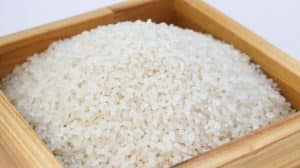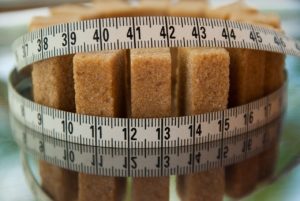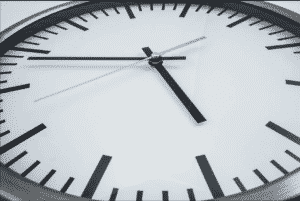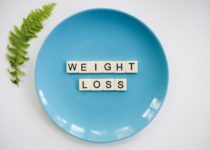Do Carbs Build Muscle?
When listening to nutrition advice you will often hear people telling you to eat more carbs in order to be able to gain muscle. But is there actually any relationship at all between eating carbs & muscle gain?
Since social media often only shows a vague image of how nutrition works there are many myths & missconceptions arounds topics like this, which spread all the way through the internet.




Polarization is present, considering that there are people eating low carb & others eating low fat, both sides claiming that their type of diet works best.
Today I'm going to explain you the actual relation that carbohydrates have with muscle growth!
Short Answer:
Carbs do not build muscle at all! The only macronutrient that actually makes your muscles grow is protein. But on the other hand carbs can help your body to prioritize the protein for muscle growth.
Therefore carbs can play a role in regards to building muscle!
How Muscle Growth Works
So as I*ve scratched just above, muscle growth is primarily driven by your protein intake. But in fact it is slightly more complicated.
In order to build muscles, your body needs Nitrogen, which is a product created when your body breaks down Amino Acids.

The essential amino acids can all be found in protein, whereas animal sources have the most complete profile of all 8 essential amino acids.
Another complete source of protein is soy, which is the best option for vegans. But even with incomplete sources of protein, you can create a complete protein by simply eating two different foods that add up with each other.
If you want to know more about complete & incomplete protein you should read this article.
On the other hand there are more factors that definetly influence your Nitrogen balance, which are:
Sleep
Overtraining
Caloric Intake
Carbohydrates????
The Role Of Sleep
Doing physical exercise simply sends the signal to your brain that your muscles have to get stronger. (oversimplified) Afterwards your body needs time to regenerate the muscle tissue that you broke down during your training. It is important to know that during this process of rebuilding your muscles grow physically stronger.
Not only does your body need Nitrogen to repair & improve your muscle tissue, but equally important it needs time. In fact the best state to be in to let your body do the work is during sleep.
Therefore you should try to sleep for 7-8 hours every single day! Besides that the quality of your sleep matters aswell, which is why you shouldn't shift your sleeping rhythm for more than 2-3 hours during your weekends.
Also try to limit your intake of alcohol before going to bed if you enjoy going out during the weekends!
The Role Of Overtraining
Another important factor which ambitious people tend to oversee is overtraining. Especially when starting out the motivation can be quite big, making you go to the gym for multiple hours in a row.
Many think, that you need to train as much as possible in order to get the results, which often leads to overtraining. Instead of primarily sending your body the signal to grow stronger, you will break your muscle tissue too far down.

Not only will the recovery process take twice as long, but it is also not going to lead to better results. Try to stay in the gym for less than 1 hour; especially if you only target 1-2 muscle groups each training.
Decrease your volume, and increase the intensity to gain results faster!

Do Calories Matter???
Right now, we were only talking about Protein as the primary nutritional factor to gain muscle mass.
But what about the amount of energy that you get from the other macronutrients. Do they matter?
In fact when building muscles, fiber & carbs don't have any direct influence on the growth of your muscles. But they are still going to play a role.
Imagine This:
The most extreme scenario you could think of would be to only eat protein. Would you still gain muscle mass?
Probably No.
Since your body needs some source of energy to literally stay alife it is going to start by burning fat. But since it takes time to take fat, your body would be looking for another source of energy.
Since the only thing you eat is protein in this example, your body would start turning protein into Glucose.
The result is that you will stop gaining muscle since your body uses most of the protein to produce energy.
This leads to the conclusion, that you need to eat carbs/fats besides protein if you want to build muscle. But fortunately you can easily be in a caloric deficit while still gaining muscle quickly.
Therefore fat loss & muscle gain can be done simultaniously!
So What about Carbohydrates?
So since calories from fats & carbs matter, you already know that carbohydrates do matter, since they are an important source of energy.
On the other hand you can also bulk up while being on a keto diet, without consuming any carbs.
But in fact carbohydrates have an advantage over fats for some people!
Digestion Time
Since your body takes less time to get the energy out of carbohydrates, they are the fastest form of fuel available for your body.
Especially sugars are going to be transformed into glucose in very short periods of time. So if you are a hardgainer, for whom it seems pretty much impossible to gain muscle or fat, carbohydrates are going to help you to gain weight.

With a fast metabolism you are going to be dependent uponst healthy carbs from brown rice/whole grain products etc. as your body tends to burn protein more easily than somebody with a slow metabolism!
Conclusion
Finally nutrition often can be more complex than it is depicted by social media & mainstream sources. It is going to take time to be able to comprehend what your body exactly needs.
One big step to improvement is to start tracking your calories & macronutrients on a regular basis. There are free apps such as MyFitnessPal etc, which help you to keep a better overview of your nutrition!
Don't work hard! Work Smart!


